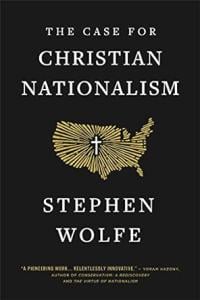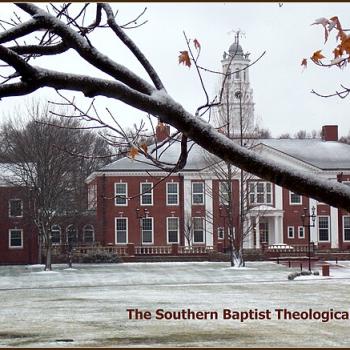Here I continue my discussion of Rodney Clapp’s book Living Out of Control: Political and Personal Faith in Waning Christendom. This week’s chapter is Chapter Five: Christian Nationalism: An Alternative to Living Out of Control. If you have read the chapter, feel free to comment but stay on topic. If you have not read it, you may ask a question.
According to Rodney (I call him by his first name as we are friends), Christian nationalism, at least as he will treat it here, is Christians regaining control of (at least) the American polity and culture. (52) Others may define it differently.
Throughout the chapter, Rodney interacts with one book that he considers the most serious contemporary exposition of Christian nationalism: Stephen Wolfe’s The Case for Christian Nationalism (Moscow, ID: Canon, 2022). I have not read it. I will depend on Rodney for knowledge of it. He quotes it extensively.
According to Rodney, Wolfe believes and argues that a restoration of Christian control of American society is it’s only hope. The alternative is “cultural suicide.” It seems to me that Wolfe probably goes farther with that vision than many other Christian nationalists. This must be a fairly extreme case. I will leave it to others who have read the book or this chapter to say what they think about that.
According to Rodney, Wolfe “yearns for a Christian magistrate or ‘prince’ who is ‘the quintessential great man’” to rule America which should be “a measured and theocratic Caesarian.” (56) Wolfe defines his Christian nationalism as “a totality of national action, consisting of civil laws and social customs, conducted by a Christian nation as a Christian nation, in order to procure for itself both earthly and heavenly good in Christ.” (Quoted on 56-57)
Among other things, many other things, such a Christian nation would control “external religion,” possibly criminalizing heresy, including “neo-Anabaptist attempts to subvert a durable Christian social order.” (57)
It seems to me that what Wolfe envisions is an America that mimics John Calvin’s Geneva—what Presbyterian John Knox of Scotland called “the most perfect school of Christ since the apostles.”
Of course, Rodney finds much with which to disagree in Wolfe’s vision. So do I. Even other Christians should shudder and shake IF it ever became the case that Wolfe’s vision inched closer to reality. I doubt that will ever happen.
Here is one quotation from Wolfe’s book that I found especially shocking. Wolfe claims to be a Christian, a Christian of the Reformed and Presbyterian type. (I would label him a Christian Reconstructionist, most of who are Reformed and Presbyterian.) On page 25 of his book Wolfe says (according to Rodney): “One ought to prefer and love more those who are more similar to him, and much good would result in the world if we all preferred our own and minded our own business.” What would Jesus say? What do other Reformed and Presbyterian Christians say? I say this is absolutely contrary to the gospel.
At the end of the chapter Rodney helpfully offers “Diagnostic Questions” the answers to which he believes will help readers decide how friendly they are to Christian nationalism.
According to Rodney, a foundation of this type of Christian nationalism is “natural law”—their belief (at least Wolfe’s) that Christianity builds on natural law. I have heard theologian Stanley Hauerwas argue against natural law mixed with Christianity. I do not dismiss natural law that easily, but I believe we have to be very careful of using it in the civil realm where laws are made.
Well, there is much more in this chapter. I can’t cover it all. I find this type of Christian nationalism especially repulsive and obnoxious and even dangerous. I wonder, however, if there are advocates of Christian nationalism who would also disagree with it and still advocate for something called “Christian nationalism.” I think I know some such people.
Sometimes it’s not helpful to set up a straw man, even if a real one, as the representative of all of the adherents or advocates of a particular belief system. It is too easy, then, for people with less extreme versions of it to dismiss it as not representative of their belief system. I would like to hear from advocates of a Christian nationalism who reject Wolfe’s version and what they envision and advocate as “Christian nationalism.”
*Note: If you choose to comment, make sure your comment is relatively brief (no more than 100 words), on topic, addressed to me (even if about Wolfe or Clapp), civil and respectful (not hostile or argumentative), and devoid of pictures or links.*














